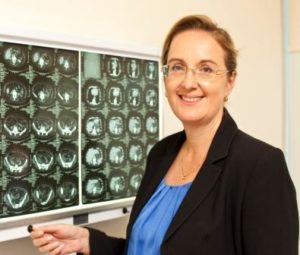
Maintenance of bone health is an important issue for cancer survivors, yet it is currently poorly managed, according to Flinders University medical oncologist Professor Bogda Koczwara.
Professor Koczwara, the Head of Medical Oncology for the Southern Adelaide Local Health Network, has been awarded a Translating Research into Practice Fellowship from the National Health and Medical Research Council worth $170,689 to conduct research aimed at improving management of bone health among cancer survivors.
“A number of cancer treatments – especially treatments for breast cancer, prostate cancer and bone marrow transplantation – can reduce bone density and lead to osteoporosis, which is already a significant health problem in Australia,” Professor Koczwara said.
“Cancer and osteoporosis are diseases of older age so osteoporosis after cancer is a result of a combination of cancer-related and age-related risk,” she said.
“The majority of cancer survivors are survivors of breast and prostate cancer who are at particular risk of osteoporosis given the nature of hormonal treatment they receive.
“However, survivors of these cancers frequently do not have their bone loss assessed or managed as there is no clearly agreed approach to management, a lack of agreement about who is responsible for bone health and a lack of easy access to evidence on how to best manage bone health after cancer.”
As part of the two-year fellowship, Professor Koczwara will examine national and international evidence supporting bone health management after cancer. The second part of the fellowship aims to identify and address the barriers to care delivery.
“There are guidelines out there but they’re not necessarily accessible to those who deliver the care,” Professor Koczwara said.
“Improving bone health after cancer requires bridging the gap between evidence and practice and ensuring that information on how to manage bone loss is easily available to relevant providers at the right time in the cancer journey.”
Professor Koczwara said she hoped to develop web-based resources on bone health to be available to health care providers through the eviQ platform – an online resource providing evidence-based cancer treatment guidelines.
“In an ageing society where people, including cancer survivors, are living longer, maintenance of bone health is an important part of their management and health care providers must be adequately equipped to deliver this aspect of care after cancer.”

